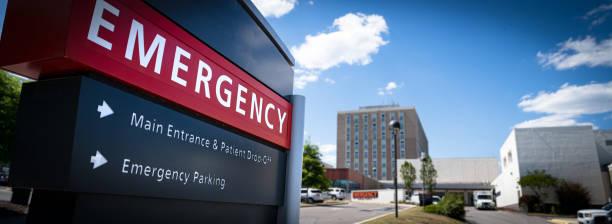Longer intervals from COVID-19 symptom onset to receipt of an antiviral drug at 16 Spanish emergency departments (EDs) were linked to worse clinical outcomes in patients at high risk for disease progression, according to a study published in Internal and Emergency Medicine.
For the nationwide modeling study, the researchers parsed the electronic health records of 534 adults with mild-to-moderate COVID-19 who were released from an ED after receiving an antiviral from January to August 2022, an Omicron-dominant period.
The average patient age was 65.8 years, 44% were men, 24.7% were confirmed to have COVID-19 via polymerase chain reaction (PCR), and 63.5% received an antiviral prescription from an ED physician.
The primary aim was to evaluate how the total time (TT) from diagnosis to antiviral receipt affects hospitalization and all-cause death by 30 days. The secondary goal was to estimate how time from ED admission to antiviral administration (hospital time; HT) affects outcomes and whether the prescribing physician's specialty influences these times.
Antivirals must be administered within 5 to 7 days of symptom onset to be effective.
ED doctor prescription sped total, hospital time
Remdesivir (Veklury) was the most commonly prescribed antiviral (50.6%), followed by nirmatrelvir-ritonavir (Paxlovid; 43.3%), sotrovimab (Xevudy; 3.7%), molnupiravir (Lagevrio; 1.9%), and combinations of these (0.6%). Thirty-two patients were hospitalized, and four died.
It is the responsibility of emergency physicians to provide the best possible care, and they should not wait for specialist consultation to prescribe an antiviral if indicated for COVID-19 if this would result in a significant delay in the start of therapy.
Each day of delayed antiviral receipt raised the risk of hospitalization or death 17.9%, but there was no association between HT and hospitalization or death. A prescription from an ED physician was linked to shorter TT and HT (adjusted median of reduction in hours, 6.78 vs 8.45, respectively).
In total, 21.9% of patients had received four COVID-19 vaccine doses, 63.7% received three, 8.8% received two, and 5.6% were unvaccinated.
"The emergency physician must have the confidence to prescribe antivirals against COVID-19 in vulnerable patients, because this prescription reduces HT and TT compared to prescriptions made by non-emergency physicians in the ED," the study authors wrote. "This reduction in TT is associated with better clinical outcomes."
To accelerate time to treatment, patients and caregivers must be educated about the importance of early COVID-19 treatment. "Technical tools such as interactive electronic platforms can help by advising vulnerable patients to seek health care if they have suggestive symptoms or a positive antigen test," the researchers wrote.
And upon arrival at the ED, physicians need to recognize the need for early antiviral administration, they added: "It is the responsibility of emergency physicians to provide the best possible care, and they should not wait for specialist consultation to prescribe an antiviral if indicated for COVID-19 if this would result in a significant delay in the start of therapy."



















